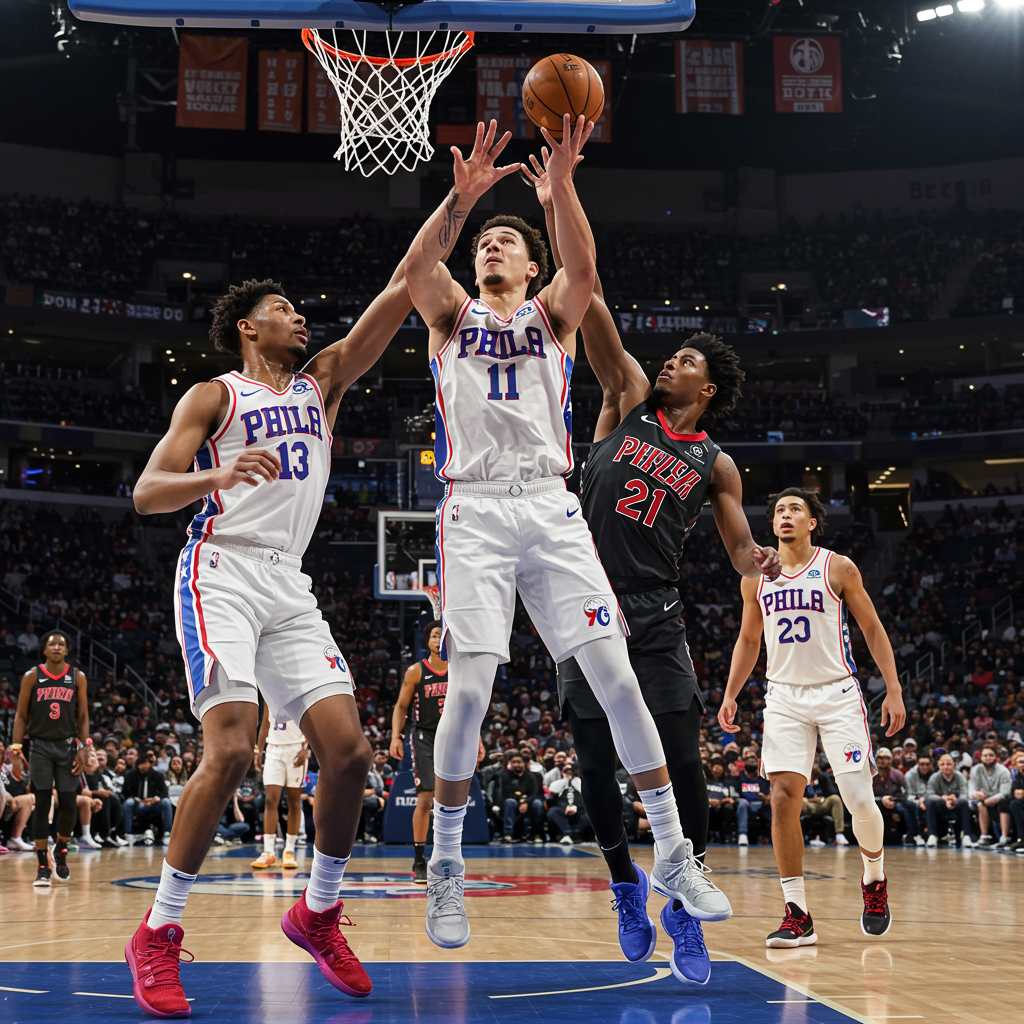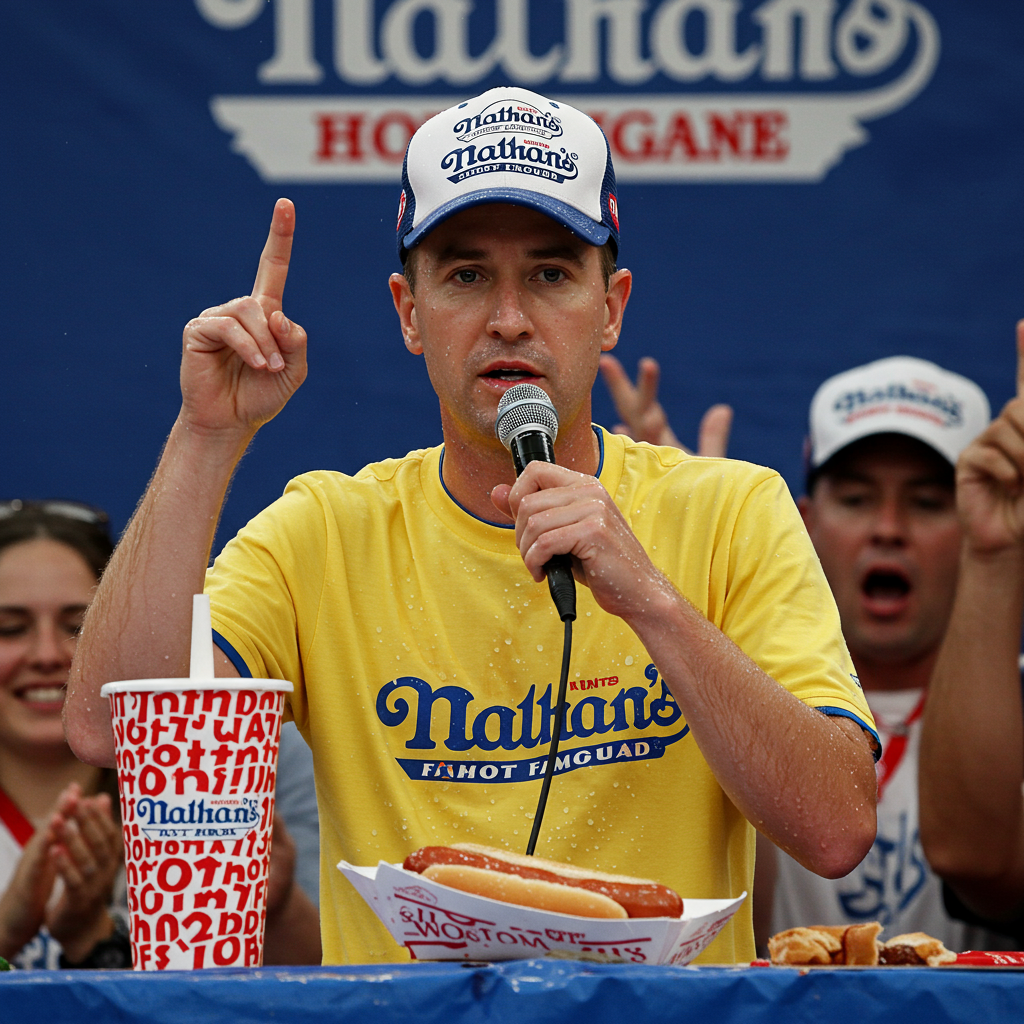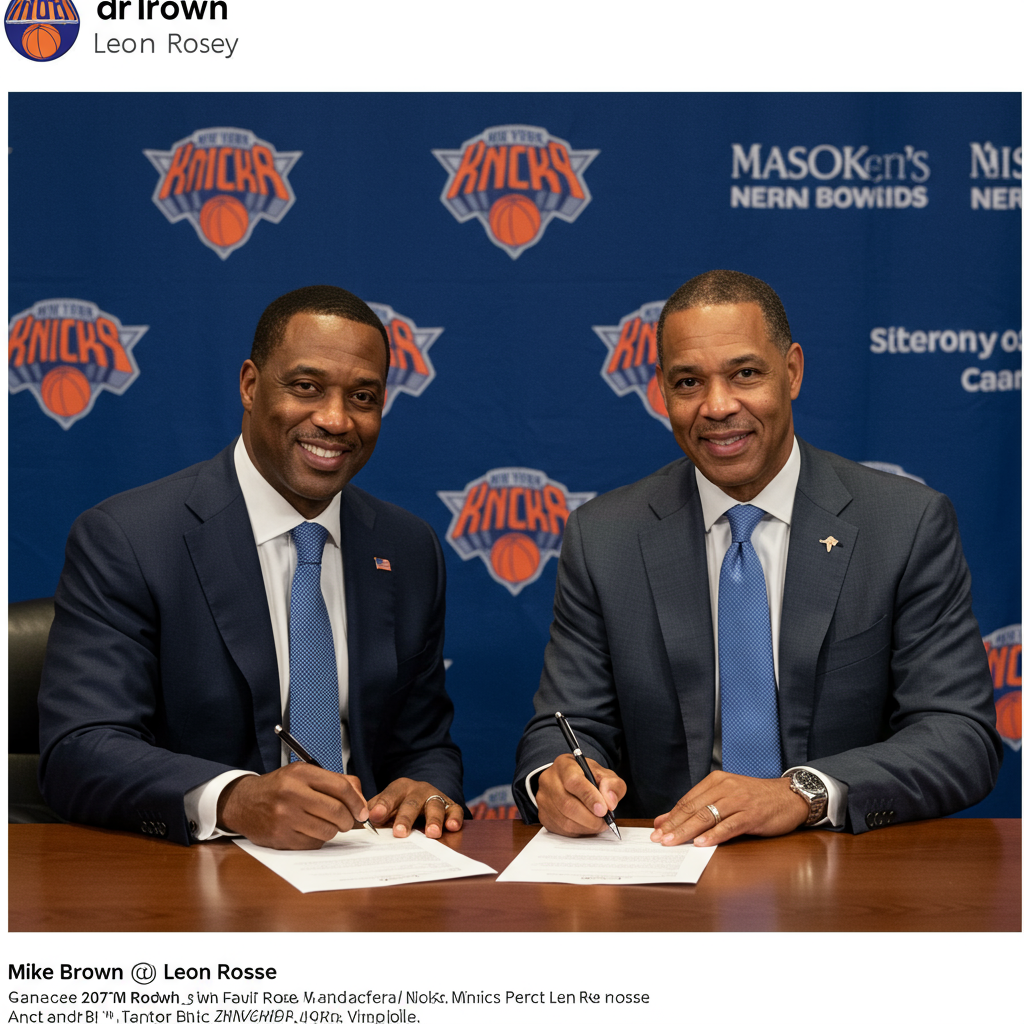The New York Knicks have hired Mike brown as their new head coach, a move sparking significant discussion across the NBA landscape. Taking on the helm of this high-profile franchise brings inherent challenges, from navigating the demanding New York media market to optimizing the roster on the court. However, many analysts point to a single, paramount factor determining Brown’s fate in the Big Apple: his relationship with Knicks owner James dolan. Success in this role, more than perhaps any other in the league, might boil down to mastering the unique dynamic within the organization’s top ranks.
Mike Brown Takes the Helm in New York
Mike Brown arrives in New York with a proven track record, particularly known for his ability to instill discipline and change team cultures. He successfully reshaped the Cleveland Cavaliers during his initial tenure and recently guided the Sacramento Kings to two consecutive winning seasons, a rare feat for that franchise in recent memory. Brown has experience coaching alongside and leading some of the game’s biggest stars, including LeBron James and Kobe Bryant. His time as an assistant under Steve Kerr with the championship-winning Golden State Warriors is also notable, where he reportedly refined his approach to communication, emphasizing simplicity and clarity. A two-time NBA Coach of the Year winner, Brown is often characterized as a coach brought in when a team needs stability—someone seen as an “extinguisher” capable of putting out organizational fires.
The Owner Factor: Navigating the James Dolan Relationship
While managing player egos, developing talent, and drawing up winning plays are standard coaching duties, the specific environment in New York adds a crucial layer. The relationship between the head coach and owner James Dolan is frequently cited as the most significant variable. Reports suggest Dolan was not aligned with the previous coach, Tom Thibodeau, and was the driving force behind Thibodeau’s unexpected dismissal. This decision came even after Thibodeau led the Knicks to their deepest playoff run in 25 years, reaching the Eastern Conference Finals. When the team sought a new coach, Dolan was reportedly particularly drawn to Mike Brown’s head coaching pedigree and success, favoring him among a list of strong candidates that included Micah Nori, Taylor Jenkins, and James Borrego. For Brown, winning over and maintaining favor with Dolan is presented as the essential “extra element” of the job, potentially outweighing on-court results in the long run.
Brown’s Coaching History: A Pattern of Shorter Stints?
Despite his impressive resume and accolades, Mike Brown’s career after his initial success in Cleveland has featured a series of relatively short coaching tenures. His time with the Los Angeles Lakers lasted just over a season before a swift firing in 2012. A return to Cleveland in 2013 saw him coach for only one year, finishing with a 33-49 record just prior to LeBron James’s highly anticipated return. In Sacramento, while he achieved two successful seasons, Brown was let go after a 13-18 start this past season, a move some observers labeled simply as “the Kings being the Kings”—synonymous with the franchise’s historical unpredictability. These shorter stints have sometimes been attributed to challenges navigating complex dynamics within front offices and ownership groups. This history raises questions about his ability to establish long-term stability, particularly in a situation like the Knicks where owner involvement is reportedly so significant.
Key On-Court Challenges Facing the Knicks
Setting aside the front office dynamics, Mike Brown also inherits a roster with distinct challenges. One primary hurdle lies in improving the team’s defensive performance. Even under a defensive specialist like Tom Thibodeau, the Knicks often ranked as only a middle-of-the-pack defensive team. The roster features players, including offensive star Jalen Brunson, who are acknowledged to have significant defensive limitations. Their positions on the floor can make it difficult to effectively mask these defensive weaknesses. Brown will need to implement schemes and strategies that elevate the team’s defensive rating and overall effort on that end of the court. Balancing the team’s offensive strengths, particularly around Brunson, while simultaneously making meaningful strides defensively will be crucial for achieving consistent success and playoff contention in a competitive Eastern Conference.
Navigating the New York Media Storm
Coaching the New York Knicks means operating under a constant, intense spotlight. The city’s media and fan base are famously passionate and demanding. Any losing streak inevitably leads to immediate speculation about the coach’s job security and discussions about potential replacements. Names like Mark Jackson, Michael Malone, or Jeff Van Gundy are often quickly floated in public discourse when the team struggles. Mike Brown must possess the temperament and media savvy to handle this intense scrutiny, manage expectations, and maintain focus within the team. While the pressure is immense, the opportunity is also significant. The Eastern Conference landscape appears more open than in recent years, partly due to injuries on other contending teams, presenting a genuine chance for the Knicks to make noise in the postseason if Brown can successfully steer the ship through the inevitable ups and downs.
Brown’s Role Beyond Coaching the Bench
Adding another layer to Mike Brown’s position is his likely role as the primary public face of the franchise. Knicks President of Basketball Operations Leon Rose is known for maintaining a low public profile, rarely speaking to the media. This positions Brown as the key spokesperson for the team. Brown does have established relationships within the organization, reportedly having comfort with both Leon Rose and senior adviser William “Worldwide Wes” Wesley from his time coaching in Cleveland. While Rose is characterized as potentially less prone to the “short fuse” associated with James Dolan, this existing rapport does not diminish the ultimate importance of the relationship with the owner himself. Brown’s ability to communicate effectively not just with players and media, but critically, with the ownership, will define his tenure.
Frequently Asked Questions
Why is the relationship with James Dolan considered crucial for Mike Brown’s Knicks success?
Owner James Dolan reportedly holds significant sway within the Knicks organization, including in coaching decisions. His alleged dissatisfaction led to the previous coach’s dismissal, even after a successful playoff run. Dolan was reportedly personally impressed by Mike Brown’s head coaching resume during the search. Therefore, successfully managing expectations and maintaining a positive relationship with Dolan is seen as the critical factor determining Brown’s job security and ability to implement his vision long-term, potentially more so than on-court performance alone.
What are the primary on-court challenges Mike Brown faces with the Knicks roster?
A major challenge for Mike Brown is improving the team’s defensive performance. The New York Knicks have struggled defensively, often rating as only average even under a defensive-minded coach. Key players, including offensive cornerstone Jalen Brunson, possess noted defensive weaknesses that are difficult to hide on the court. Brown must find ways to make the team a more cohesive and effective defensive unit while still maximizing their offensive potential.
Does Mike Brown’s past coaching history suggest he can succeed long-term in New York?
Mike Brown has a history of shorter tenures after his initial successful stint in Cleveland, including brief runs with the Lakers and a second time in Cleveland, and a relatively short period in Sacramento despite achieving success there. These departures have sometimes been linked to front office or ownership dynamics. While he has proven he can change cultures and win Coach of the Year awards, his history highlights the importance of organizational stability, which could be a concern given the reported challenges of working with James Dolan in New York.
In conclusion, Mike Brown brings significant coaching experience and a history of turning teams around to the New York Knicks. He faces inherent challenges coaching in a demanding market and improving the team’s on-court performance, particularly defensively. However, the overarching narrative suggests that his success or failure may ultimately hinge less on Xs and Os and more on his ability to build and maintain a functional relationship with the team’s owner, James Dolan. Navigating this critical dynamic is the ultimate test for Brown in New York.




